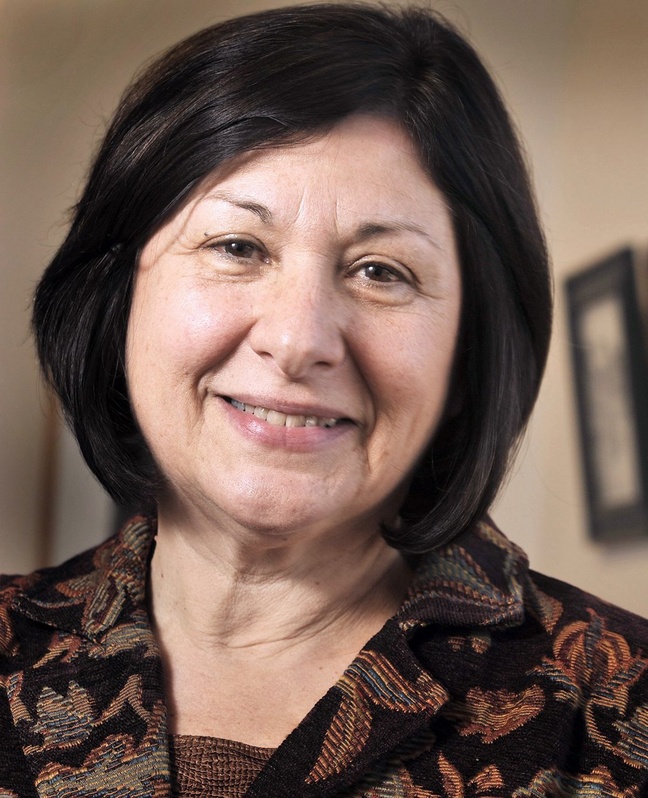The president of the University of Southern Maine announced Wednesday that she has rescinded large, discretionary salary increases granted recently to her chief of staff and executive director of public affairs.
President Selma Botman pulled the raises in the wake of a Portland Press Herald story published last Thursday that revealed nearly $1 million in discretionary raises handed out at USM over the past four years.
During the same period, enrollment continued to decline and most employees got no raises. The university faces a $5.1 million budget cut in the coming year that will likely bring staff reductions.
The story also prompted University of Maine System Chancellor James Page, who started his job last week, to immediately suspend all future discretionary raises for employees of the system’s seven universities pending a review of systemwide compensation programs.
“Legitimate concerns have been raised,” Botman wrote in an email sent to USM employees and community members late Wednesday afternoon.
Botman gave raises last summer to Tim Stevens, her chief of staff, increasing his salary $16,500 (18 percent), from $89,500 to $106,000; and to Bob Caswell, the university’s public affairs director, whose salary increased $18,212 (22 percent), from $87,788 to $106,000. They were two of 44 USM employees who got discretionary raises in the fiscal year that started July 1.
Botman said she rescinded Stevens’ and Caswell’s increases because they generated the greatest concern.
“Over the last week I have listened carefully to many people, both among the general public and within the university,” Botman wrote. “I completely understand that reasonable people believe that any salary adjustment should be scrutinized thoroughly to ensure that the university invests its precious resources prudently.”
The raises were granted through the university system’s eight-year-old Salaried Employee Compensation and Classification Program, which allowed employees or their supervisors to have their positions reviewed and salaries adjusted to reward increased duties and provide pay that is competitive with similar positions at other schools. The raises were funded within existing budgets, but they often weren’t subject to public review or approval.
Botman said her decision to rescind the raises was in the best interests of USM and the university system.
“Prudent stewardship of public resources at this institution is one of my most important responsibilities,” Botman wrote. “This has been a powerful reminder of how deeply people feel about the University of Southern Maine and its importance to the future of individual students, their families and this state.”
University officials didn’t respond to a request for comment Wednesday evening.
It’s unclear whether Botman rescinded the two raises to their start date on Aug. 1, 2011, or whether other recent raises are affected. Two staff associates in her office received 21 percent salary increases starting Nov. 1, 2011, when their jobs were reclassified from hourly to salaried positions, resulting in salaries of $40,500 each.
The 44 raises initially granted in fiscal 2012 totaled $242,000. Individual raises ranged from 3 percent to 41 percent — and from $1,400 to $34,514 — per year.
USM gave 46 position-review-related raises in fiscal 2011 totaling $316,760; 30 raises in fiscal 2010 totaling $211,483; and 46 raises in fiscal 2009 totaling $202,265. Including the current fiscal year, the university had given 166 individual raises worth $972,585 over the past four years.
Meanwhile, faculty and other employees across the University of Maine System haven’t had cost-of-living raises since 2009, and system administrators recently offered the faculty union a 0.5 percent increase after faculty members worked a year without a contract.
The position-review program was open to about 600 of the university’s 1,401 union and nonunion employees — a number that’s down 118 positions since 2007.
The program was written into employee contracts and open to all salaried workers except faculty, deans, vice presidents and directors of large divisions. Faculty are eligible for merit increases through post-tenure review.
In reviewing Stevens’ and Caswell’s salaries, USM’s compensation analyst sought comparative data through the College and University Professional Association for Human Resources.
Their jobs and salaries were compared with similar positions at other public and private colleges and universities nationwide that grant bachelor’s and master’s degrees, have annual budgets of $126 million to $383 million, and have enrollments of 3,403 to 9,446.
USM’s fiscal 2012 budget is $147 million and its enrollment is 9,301, down from 11,382 in 2002.
Staff Writer Kelley Bouchard can be contacted at 791-6328 or at:
kbouchard@pressherald.com
Send questions/comments to the editors.



Comments are no longer available on this story